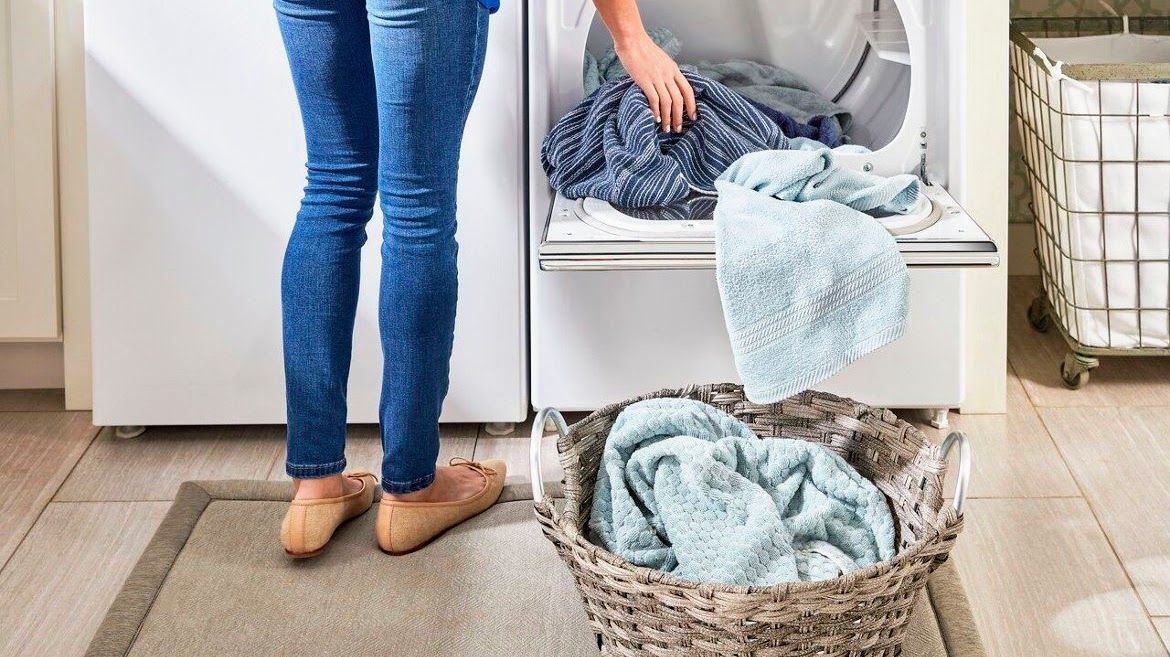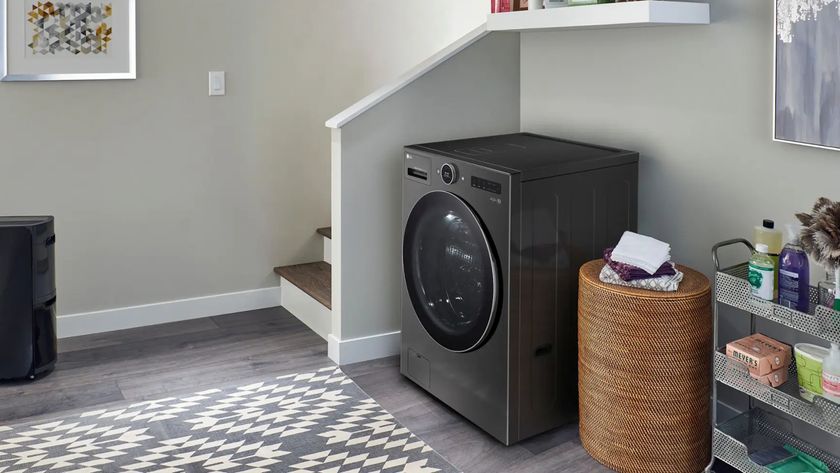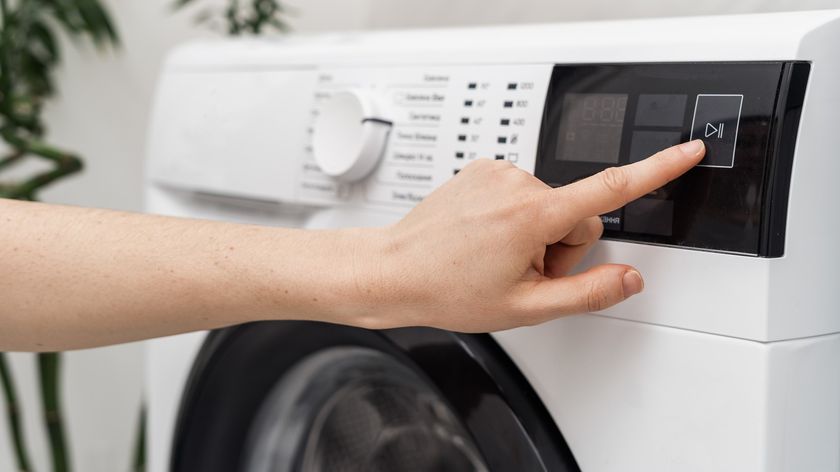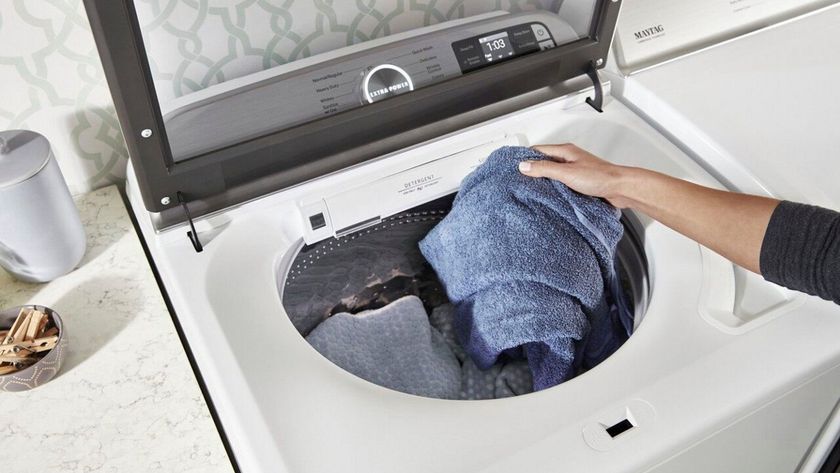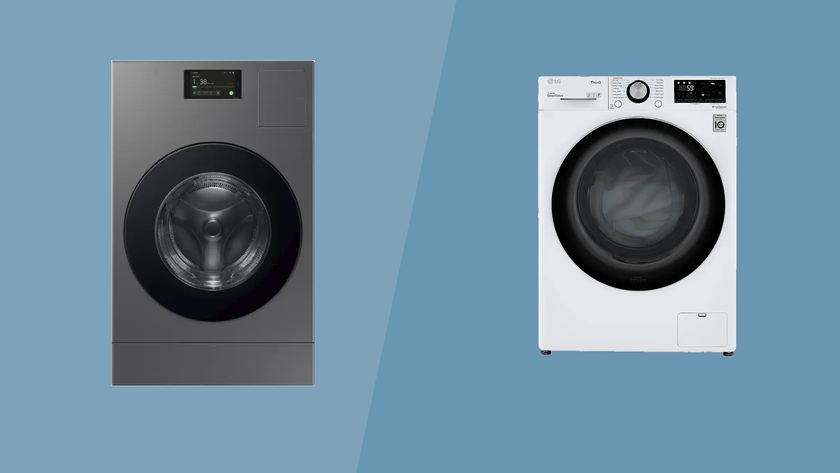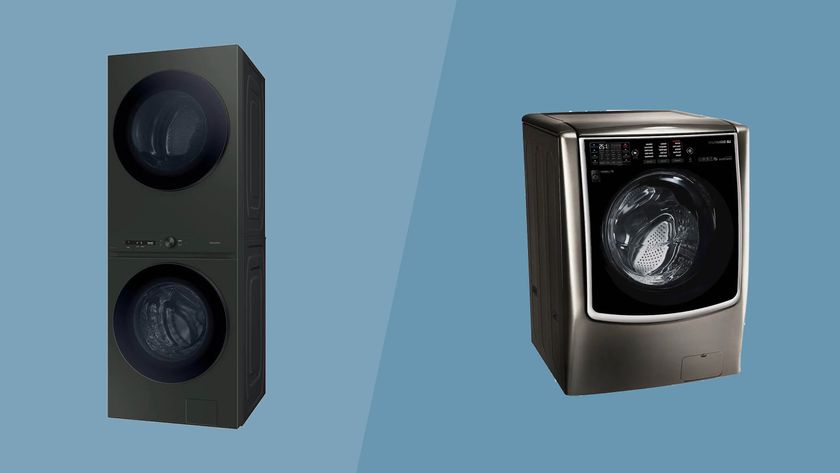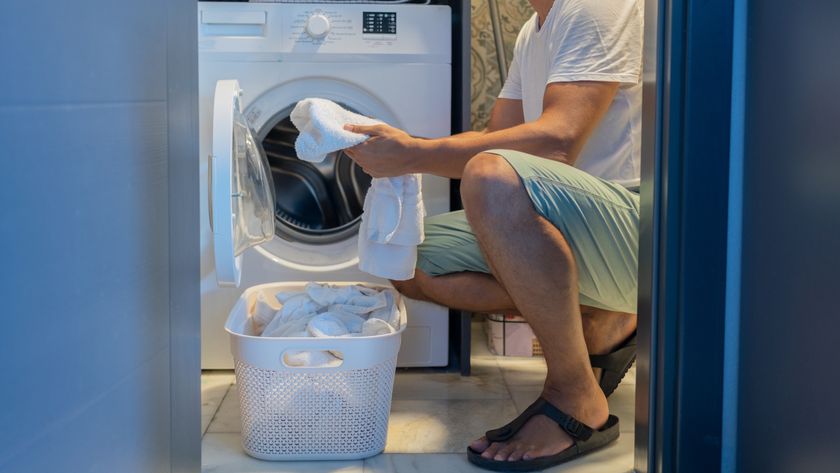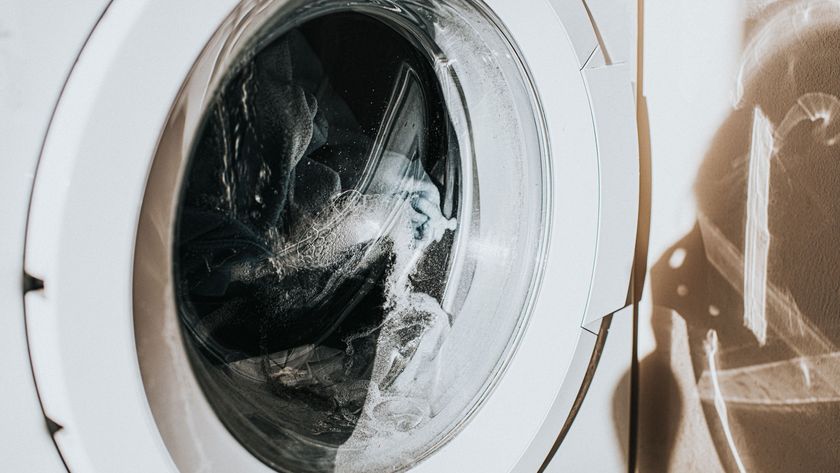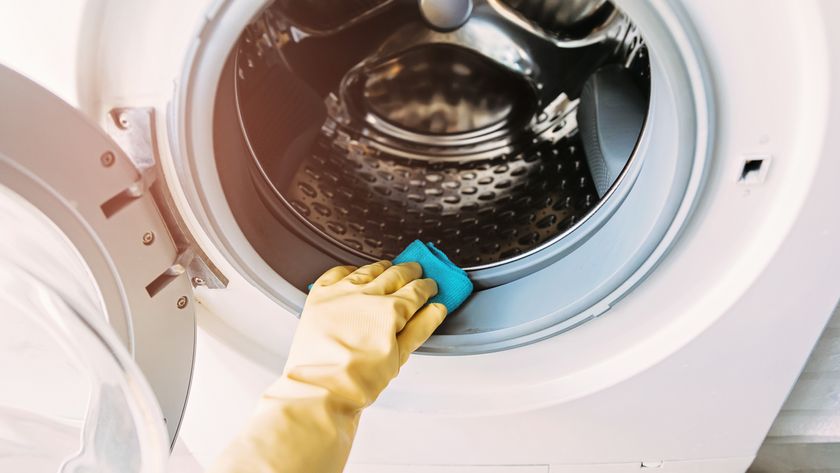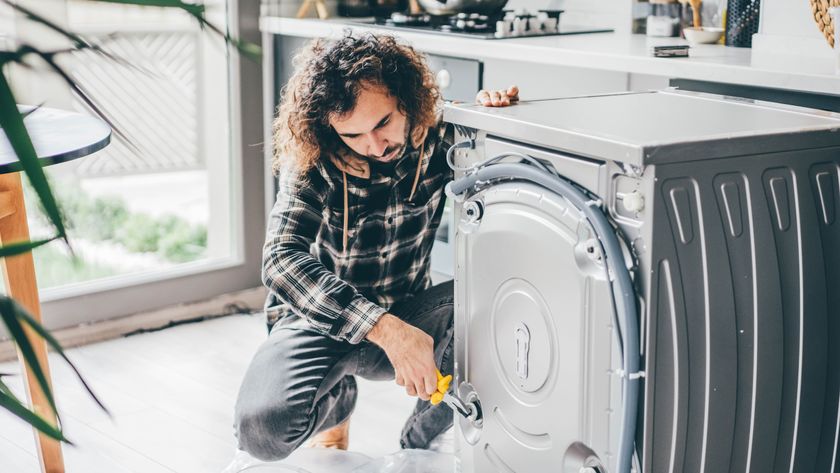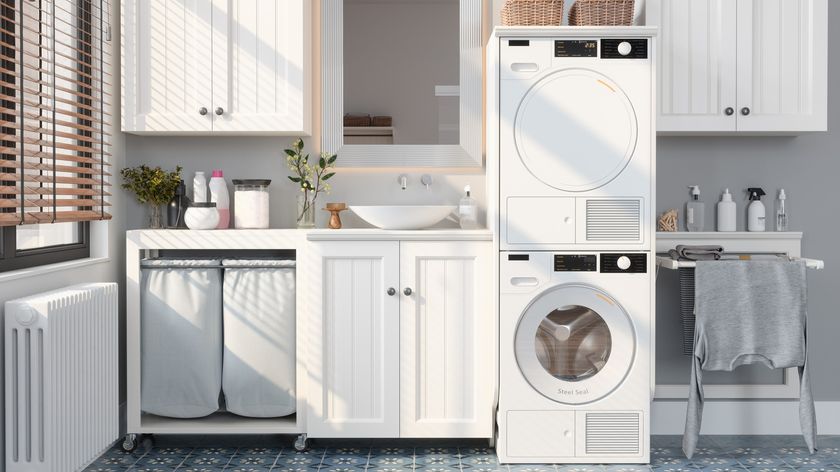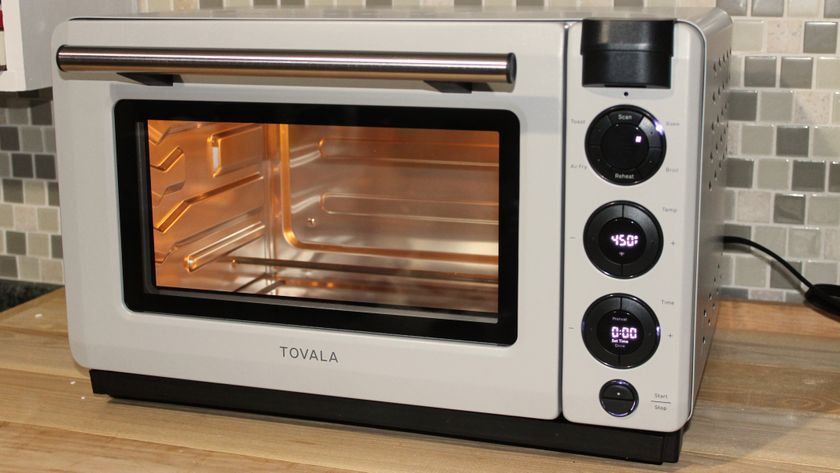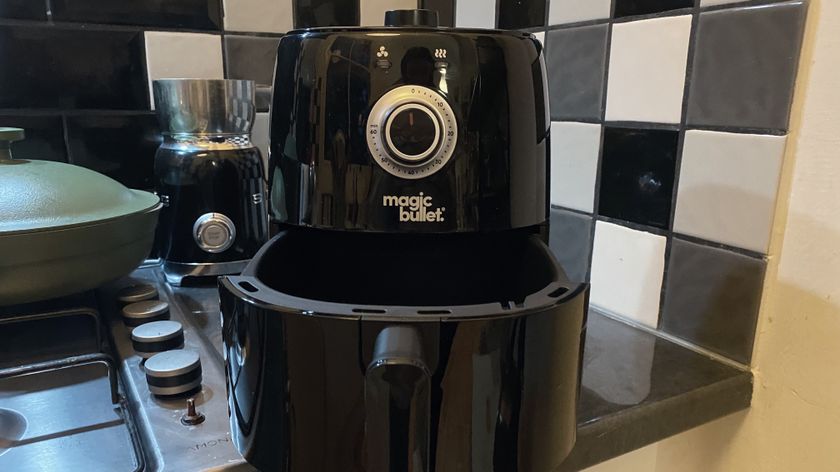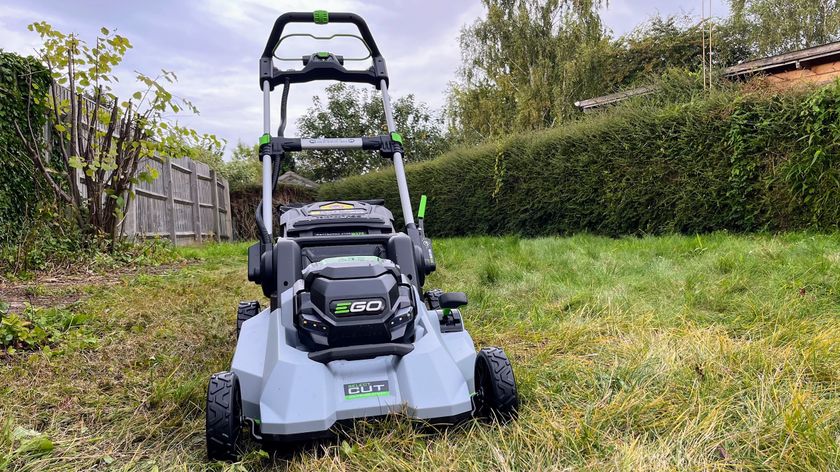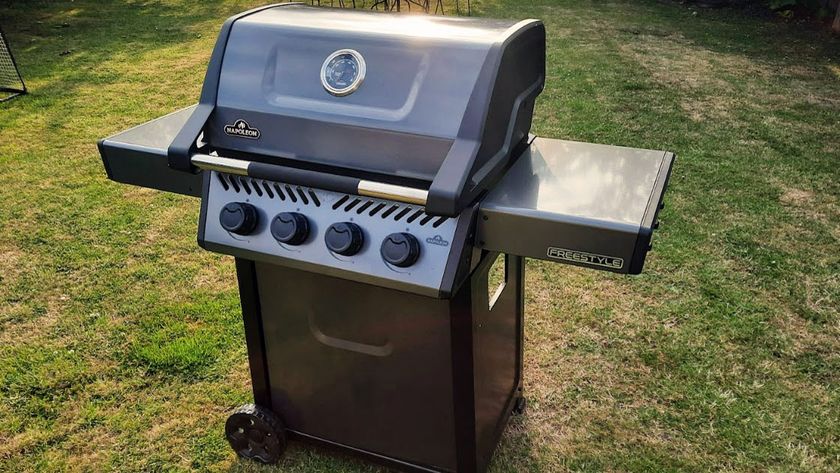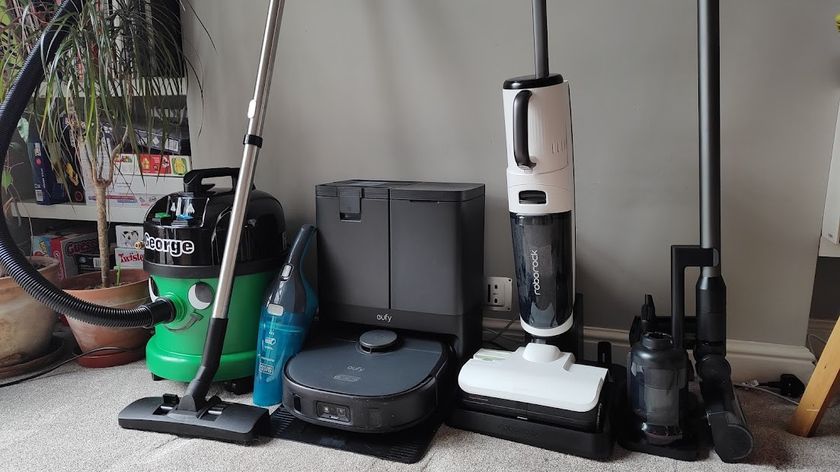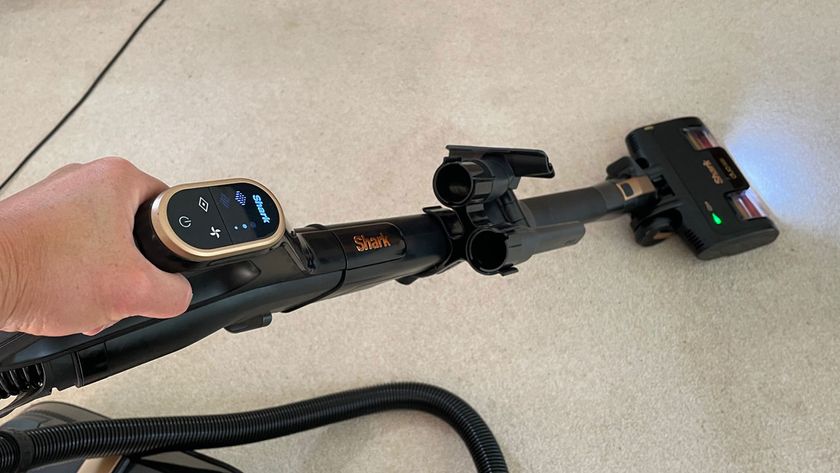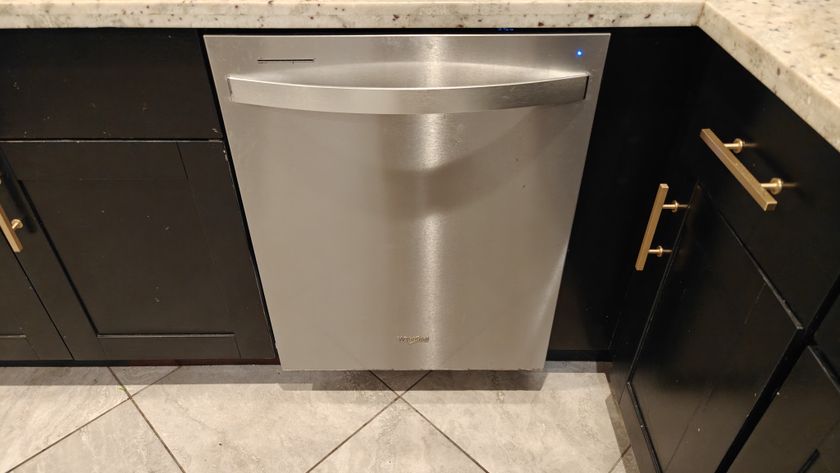The best dryers are a great solution when the weather doesn't allow you to line-dry your clothes or if you live in an apartment. They can quickly and efficiently dry your clothes, bedding, and towels, making them ready to wear in no time. Whether you choose a gas or electric model, both work well. Gas dryers are typically more energy-efficient and cost-effective in the long run, while electric dryers are easier to install and have a lower upfront cost. They also differ in terms of speed and efficiency.
When selecting a new dryer, it's crucial to focus on the features that cater to your specific needs. Do you need lightning-fast drying programs, or would Wi-Fi connectivity and phone alerts significantly improve your user experience? You can also choose between customizable programming or thoughtfully selected preset options.
If space is limited, consider the practicality of the best washer-dryer combos, which offer two-in-one functionality in a compact footprint. If you're also looking for a new washer, consult our best washing machine guide for a perfectly matched pair. Our top picks are based on real-world experiences and customer feedback, ensuring you make a well-informed decision when selecting the best dryer for your home.
The quick list
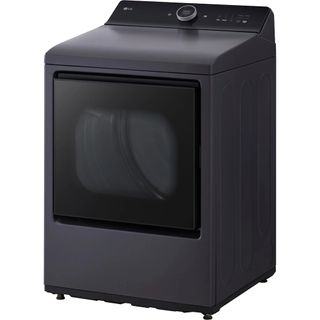
The best dryer overall
The LG 7.3 cu. ft. Electric Dryer features advanced drying efficiency, smart technology, steam function, and an intuitive control panel, ensuring a user-friendly experience.
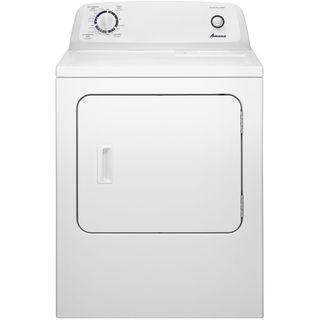
The best budget dryer
The Amana 6.5 Cu. Ft. Electric Dryer features 11 cycles, moisture-sensing technology, and efficient drying. It lacks steam and smart features, but it is an affordable and reliable choice.
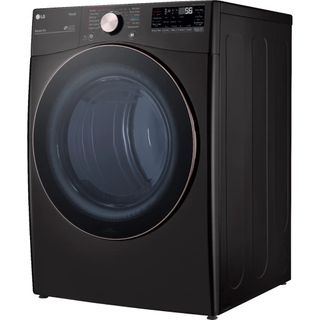
The best premium dryer
The LG 7.4 Cu. Ft. Smart Electric Dryer features intuitive controls, moisture sensing, steam technology, and efficient performance. It enhances laundry efficiency while saving energy and time.
Load the next products ↴
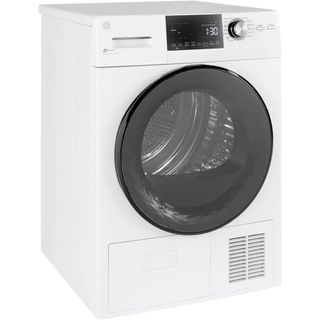
The best dryer for small spaces
The GE GFT14ESSMWW Electric Dryer offers 13 cycles, moisture-sensing technology, and user-friendly controls, making it ideal for compact spaces and efficient laundry management.
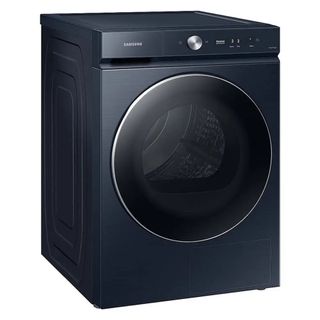
The best large-capacity dryer
The Samsung Bespoke Ultra Capacity Ventless Hybrid Heat Pump Dryer offers innovative features, moisture sensing, steam technology, and Wi-Fi connectivity for efficient, large-capacity laundry care.
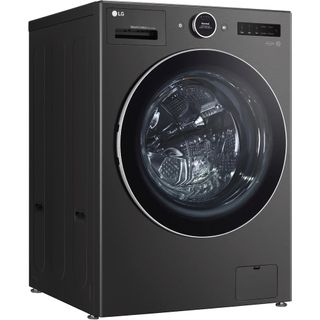
The best washer-dryer combo
The LG washer-dryer combo features 5.0 cu. ft. capacity, 15 wash programs, smart technology, efficient drying, and steam features for a hassle-free laundry experience.
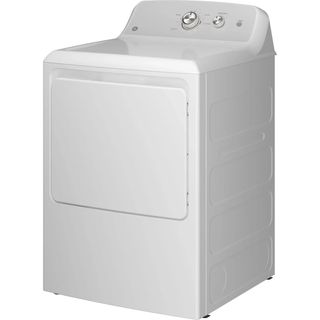
The best gas-powered dryer
The GE GTD38GASWWS Dryer features advanced technology, moisture sensing, steam functionality, and smart notifications. It ensures efficient drying and garment care while promoting sustainability.
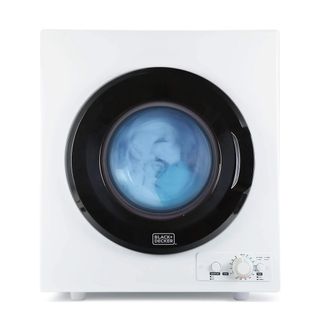
The best portable dryer
The Black+Decker 2.65 Cu.Ft. Stackable Smart Electric Dryer offers efficient, compact drying with moisture-sensing technology. It can handle up to 8.8 lbs. while minimizing wrinkles.
The best dryers we recommend in 2025
Why you can trust Top Ten Reviews Our expert reviewers spend hours testing and comparing products and services so you can choose the best for you. Find out more about how we test.
The best dryers we've tested
Our team has thoroughly reviewed the following products featured in this buyer's guide. We strive to provide comprehensive and unbiased rankings based on our hands-on testing and expert research. Our evaluations consider top-rated brands and essential features to assist you in making informed purchasing decisions at the best value.
The best dryer overall
The LG 7.3 cu. ft. Ultra Large Capacity Rear Control Electric Dryer combines sleek design with advanced features. Its intuitive control panel, moisture sensing technology, and steam function enhance drying efficiency. With smart technology for remote monitoring and effective performance on heavy loads, it offers a user-friendly and convenient drying experience.
Control Panel: The LG 7.3 cu. ft. Ultra Large Capacity Rear Control Electric Dryer has an impressive control panel that combines functionality and sleek design. The LCD screen beside the cycle selector knob allows you to navigate through a bunch of drying programs, including Normal, AI Dry, and Bedding and Towels, and with touch-sensitive controls, you can easily adjust settings. A dedicated settings button and clear indicators for temperature and dryness levels also make operation easy, and with the control panel's layout and aesthetics, even tech-illiterate users could operate the dryer with confidence.
Moisture Sensing: Moisture sensing is a standout feature of the LG dryer, making the whole process efficient and effective. To avoid overdrying and optimize energy use, this technology intelligently detects the moisture level in clothes and adjusts the drying cycle accordingly. During her tests, Alex found that the AI Dry option, even though it sometimes took longer to finalize a cycle, tried to get the perfect dryness without damaging fabrics. While AI does its best, drying similar materials together yields the best results, and mixed fabric loads can occasionally result in inconsistencies, especially with bulkier items like jeans.
Steam Technology: The steam technology of this dryer is effective for wrinkles and revitalizing clothes; if you're busy and have little time, it's the perfect feature. During testing, the steam function helped Alex remove creases from clothes and give them a new life. It lacks other steam options, such as steam sanitary, which would have given it more versatility, but it still does an excellent job of wrinkle reduction.
Smart Technology: The LG dryer's integrated smart technology is a lot of fun, with the LG ThinQ app letting you start, stop, and select cycles remotely from your phone. In addition to convenience, this feature allows you to monitor cycles and get notifications when your clothes are dry, and the app is pretty easy to use with a simple layout and a Smart Diagnosis feature for troubleshooting issues. The app also made Alex more conscious of energy consumption. However, if you prefer physical controls, be aware that some advanced dryer programs must be activated via the app, which can be a little cumbersome.
Drying Efficiency: This appliance is excellent at drying heavy loads like duvets and towels. Alex found that the dryer consistently completed the job quickly and thoroughly, especially with loads of similar fabrics. Overall performance was good, even if heavier items like jeans sometimes needed an extra cycle to dry. Programs like Bedding and Quick Dry were beneficial, and the quiet operation—averaging between 60 and 65 dB—means it's easy to use throughout the day.
Read more: LG DLEX8600BE 7.3 Cu. Ft. Smart Electric Dryer review
| Attribute | Notes | Score |
|---|---|---|
| Setup | Free in-home delivery and set up that takes about 30 minutes when you order through LG; delivery and installation costs a fee when ordered through Best Buy or LG; must have a four-hole outlet; downloading and connecting to LG ThinQ app is simple | 9/10 |
| Design & features | matte black finish; black glass door; 7.3 cu. ft. capacity; lint filter; cycle selector knob; AI Dry, Steam Fresh, and Antibacterial options | 9/10 |
| Performance | variety of drying programs, including Normal, AI Dry, Bedding, Towels, and Steam Fresh; AI Dry feature; Bedding program did not fully dry larger items | 8.5/10 |
| Care & maintenance | Emptying the filter after each use and keeping the dryer clean of dust and lint | 9/10 |
| Value | competitive pricing; bundling options | 9.5/10 |

"With 24 programs and 20 settings, the LG 7.3 cu. ft Ultra Large Capacity Rear Control Electric Dryer offers users more control and efficiency in drying their clothes. It can manage large loads, has app connectivity, and even can use steam to unwrinkle your clothes. The AI Dry feature may not be perfect, but this dryer is a steal for the price and size."
The best premium dryer
The LG 7.4 Cu. Ft. Smart Electric Dryer offers user-friendly controls, advanced moisture sensing, steam technology, and innovative features. Its large capacity and efficient drying performance enhance the laundry experience, ensuring clothes dry perfectly while saving energy and time for users.
Control Panel: This LG DLEX4000B 7.4 Cu. Ft. Smart Electric Dryer has a straightforward control panel with labeled cycles and options. Its dials and buttons provide easy navigation, while touch displays let you select features like Antibacterial and SteamFresh. The dryer has 12 drying programs for different fabric types.
Moisture Sensing: LG's advanced moisture sensing technology detects drum moisture levels and adjusts drying times accordingly. This prevents overdrying and keeps clothes damp in mixed loads. During testing, Terri's dryer finished cycles ahead of schedule, saving energy and taking better care of her clothes.
Steam Technology: The appliance uses steam technology to reduce wrinkles and refresh clothes. Terri found it great for dress shirts and delicates, minimizing wrinkles and rejuvenating fabrics. It also shortens ironing time and revitalizes stored-away clothes. You can also use it to sanitize pillows and stuffed animals.
Smart Technology: LG's DLEX4000B offers a better drying experience with smart technology. The LG ThinQ app lets you control and monitor the dryer remotely, so you'll know when it's done and can troubleshoot problems. Multitasking is easy with this, and it's super flexible.
Drying Efficiency: At 7.4 cu. ft., it can handle a lot of laundry. The LG DLEX4000B dries laundry efficiently, completing cycles in 54 to 57 minutes, so Terri can finish her laundry in two hours. The artificial intelligence sensors allow for customized drying times based on moisture levels, which Terri liked.
Read more: LG DLEX4000B 7.4 Cu. Ft. Stackable Smart Electric Dryer review
| Attribute | Notes | Score |
|---|---|---|
| Setup | convenient installation; installation issues | 7/10 |
| Design | Tested in the beautiful Black Steel color; easy-to-use touchscreen and dials; love the LED inside the drum | 9/10 |
| Performance | Efficiently handles large loads and evenly drying clothes; AI sensor | 8/10 |
| Value | Has a list price of $1,249 on the LG website. Plenty of availablity on reseller sites such as AJ Maddison, Lowe's and Sears. It is a lot of $$s when not on sale though. | 8/10 |

"This LG DLEX4000B 7.4 Cu. Ft. Smart Electric Dryer is sleek and stylish, loaded with features, and performs well on various cycles. However, the lint filter assembly feels a little flimsy, so you must be careful after long-term use."
The best washer-dryer combo
The LG washer-dryer combo has a 5.0 cubic foot capacity to handle large loads, such as queen-size comforters. Its energy efficiency, 15 wash programs, smart features, and effective cleaning make her laundry experience hassle-free.
Control Panel: LG's 5.0 cu. ft. Mega Capacity Smart Front Load All-in-One Ventless Washer/Dryer Combo has a modern control panel. The primary touchscreen is intuitive and responsive, though power and start/pause buttons take much more pressure than expected. You might have to press the controls a lot before they respond, which is frustrating. Loading and unloading dark clothes is easy with the interior light, but navigating through the various washing and drying cycles is easy.
Moisture Sensing: The moisture-sensing technology ensures clothes dry perfectly without overdrying, which wears out fabrics. Paige found that her clothes came out perfectly dry without overdrying. The dryer detects different items for mixed loads and adjusts drying time accordingly so they don't dry unevenly. Due to accurate moisture measurement, Paige was often surprised when the dryer finished earlier than expected, reducing her drying time.
Steam Technology: SteamFresh and SteamSanitary reduce wrinkles and odors in clothes. Paige used SteamFresh on slightly wrinkled clothes, so they didn't need ironing. SteamSanitary was used for plush toys and bedding, keeping them clean during allergy season. It saves a lot of time by removing ironing and washing and gently penetrating and refreshing fabrics while maintaining integrity.
Smart Technology: Paige loved the two touchscreens, which are modern and highly responsive, making settings easy to navigate. The automatic detergent dispenser allowed her to put detergent in the reservoir and leave the machine to do the rest, and the AI Wash + Dry feature was invaluable on busy days.
Drying Efficiency: On the one hand, it excels with regular clothing items, resulting in a quiet and gentle drying experience that generates minimal noise, so it's a good choice for small spaces. The dryer reduces vibration without compromising performance by rotating intermittently, but with a unique drying style, heavier items like fleece blankets and comforters can get damp after a few cycles. When a comforter was partially wet after three cycles, the dryer handled lighter fabrics fine, drying them comfortably with very few wrinkles.
Read more: LG WM6998HBA 5.0 Cu. Ft. HE Smart Mega Capacity All-in-One Electric Washer/Dryer

"Traditional washers and dryers take up much space, and switching loads over is inconvenient. The LG 5.0 cu. ft. Mega Capacity Smart Front Load All-in-One Ventless Washer/Dryer Combo streamlines the laundry process, saves space, and includes plenty of smart features for good measure. It's efficient, with the ability to automatically wash and dry laundry in two hours. Plus, when paired with LG’s smartphone app, you can monitor and even control the machine without being in the house. As a result, this washer-dryer combo is an appealing option for anyone with limited space, wants more precise control over their laundry, or just wants an easier option than a separate washer and dryer."
| Attribute | Notes | Score |
|---|---|---|
| Setup | installation instructions and included tools facilitate the process; initial delivery and moving challenges | 7/10 |
| Design | A sleek, modern design helps to save space, and the machine is about the size of a traditional front load washer | 8/10 |
| Performance | The machine performed well in most tests, including washing and drying in 2 hours, but struggled to dry bulky items like blankets and comforters | 8/10 |
| Maintenance | clear guidelines provided, and the proactive features that remind users of necessary tasks | 8/10 |
| Value | The price is about average for washer dryer combos and is justified with the many features | 9/10 |
More dryers we recommend
Top Ten Reviews is on a mission to review everything we feature in our buyer's guides. Still, while we work hard to make this a reality—or where this isn't possible—some of our guides still feature rankings based on our team's considerable expertise and research.
While we haven't been able to test some of the units in this guide in person, we've instead honed in on top-rated brands and used our knowledge of the best features to help you make the right decision for your home, all for the best price.
The best budget dryer
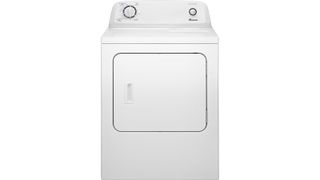
The Amana 6.5 Cu. Ft. Electric Dryer is an affordable option that doesn't compromise on performance. With 11 drying cycles and moisture-sensing technology, this dryer makes laundry day easier while protecting your fabrics. Its easy-to-use controls and impressive drying efficiency make it a great choice.
The control panel has 11 drying cycles, and the dial controls make it easy to select one. With clear labels and intuitive layouts, users can focus more on laundry than managing the machine, so the drying process runs faster. The design is straightforward, but some people think touch controls or a modern display would improve it.
Amana's dryer has moisture sensing, which keeps the drum temperature in check to prevent fabric damage. Once the clothes are dry, this technology stops the cycle, so you don't have to worry about overdrying. Some people have complained about inconsistent drying times, especially on bulkier loads, but customers generally praise this reliability.
Amana's dryer doesn't have steam technology, but its existing drying cycles can minimize wrinkles. However, the lack of steam may be a drawback for delicate or formal clothes. In addition, this model doesn't have smart technology, so it can't integrate with smart home systems or offer mobile notifications for remote control, which some people dislike.
The best dryer for small spaces
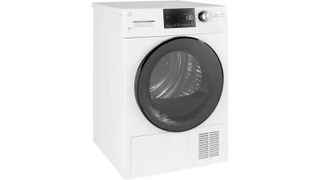
The GE GFT14ESSMWW 13-Cycle Electric Dryer is an efficient and user-friendly option for those seeking reliable laundry solutions in compact spaces. The 24-inch dryer's size and straightforward design make it perfect for apartments and small homes. With 13 different drying cycles tailored to different fabric types and moisture-sensing technology, your clothes will dry perfectly without overdrying.
This machine has an intuitive control panel with clearly labeled settings that make it easy to use. There are special cycles for delicates and heavy loads, so you can easily select a program and monitor it. The audible end-of-cycle signal lets you switch loads quickly, so you don't have to worry about it.
Moisture-sensing technology lets you dry clothes depending on how damp they are. This not only saves energy but also prevents fabrics from becoming damaged, extending their life. Users have reported great satisfaction with the dryer's ability to eliminate wrinkles and odors, providing fresh results without the need for steam technology. You can use it on anything, from delicate fabrics to towels.
Many users love the straightforward operation of the GE electric dryer, even though it doesn't have Wi-Fi or app integration. For those who prefer simplicity in their appliances, laundry management is hassle-free because there are no complicated digital interfaces. The dryer effortlessly handles all their laundry needs and is reliable and efficient.
This GE electric dryer has a 4.1 cu. Ft. capacity and quick drying capabilities. It also operates quietly, so you can do laundry at any time.
The best large-capacity dryer
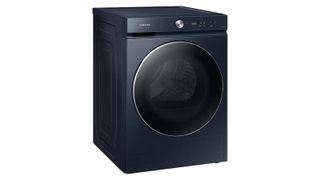
Because of its innovative features and efficient performance, the Samsung Bespoke Ultra Capacity Ventless Hybrid Heat Pump Dryer is one of the best large-capacity dryers on the market. Its advanced moisture sensing and steam technology make laundry tasks easier while preserving fabric quality.
The dryer's control panel features an AI Smart Dial, which allows you to select cycles that suit your needs, so you don't have to spend too much time setting it up. The clear LCD lets users see what's going on quickly, and the customizable cycle list will enable them to adjust options based on their laundry needs. MultiControl lets you control the washer from the dryer if you're using stacked units.
A key highlight of this model is its moisture-sensing technology. AI Optimal Dry has nine sensors that adjust real-time drying times to prevent clothing from overdrying. Customers love its consistent results across various load sizes, maximizing drying efficiency. This technology maintains fabric integrity and reduces wear and tear on clothing.
Using steam technology, you can remove wrinkles and freshen clothes without ironing. In addition to sanitizing fabrics, steam is gentle on delicate materials, so it's great for baby clothes and allergy sufferers.
The SmartThings dryer has Wi-Fi and SmartThings connectivity, so you can control it remotely, schedule cycles, and receive alerts when done. Its 7.8 cu. ft. capacity allows it to handle larger loads, saving energy and drying time. It is also ENERGY STAR certified.
The best gas-powered dryer
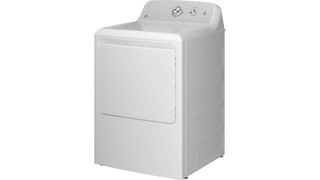
With the GE GTD38GASWWS 7.2 Cu., you'll love the Ft. Gas Dryer's advanced technology and easy-to-use design. In addition to clearly labeled buttons and a bright display, this dryer has an intuitive control panel, so anyone can use it, regardless of their tech skills. The responsive touchpad makes navigating between different settings tailored to other fabrics and user preferences easy.
GE's dryer has advanced moisture-sensing technology that helps protect clothing and make it more efficient. The dryer adjusts the drying cycle automatically based on the moisture level inside the drum, so you don't have to guess. Not only does this save energy, but it also makes sure you always get a perfect dry.
As a bonus, the dryer uses steam technology to reduce wrinkles and refresh clothes. It's great for garments that need a quick touch-up before wearing. The steam function also combats odors, so clothes feel fresher without needing a complete wash cycle, and it's great for even sensitive fabrics.
The GE dryer's smart technology allows users to receive notifications about cycle status, completion times, and maintenance alerts on their phones. This feature allows laundry cycles to be managed remotely, so busy schedules don't interfere.
The GE dryer efficiently dries clothes in one cycle with powerful airflow and a large heat diffuser. With multiple temperature settings, it protects garment care and prevents overdrying, making it an excellent choice for environmentally conscious people who care about performance and sustainability.
The best portable dryer
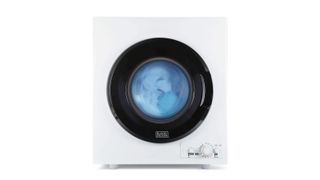
The Black+Decker 2.65 Cu.Ft. Stackable Smart Electric Dryer is an ideal drying solution for small households. Its compact design combines efficiency and functionality. The dryer's intuitive layout enhances usability and makes it look modern. With clearly labeled buttons and an accessible dial, users can quickly access various settings. Indicators provide real-time feedback so users know what's going on.
One of the standout features of this dryer is its advanced moisture-sensing technology. This system intelligently measures the moisture levels in your laundry and automatically adjusts the heat settings and drying time. It doesn't over-dry or under-dry fabrics, so the results are always perfect. It can also adjust to different load sizes, so it's energy efficient without sacrificing performance.
With its focused drying method, users appreciate that it dries garments thoroughly without excessive wrinkles, compensating for the lack of steam with reliable performance.
This dryer can handle loads of up to 8.8 lbs., so it's a great choice for people with limited space. Depending on the load and settings, it takes between 30 and 200 minutes to dry, and most users think it's pretty efficient on average.
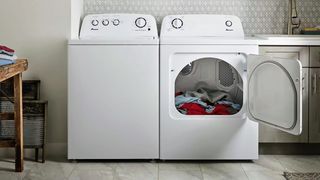
How to choose the best dryer for your home
There are lots of things to take into consideration when you're shopping for a new dryer. Here are some things to start with.
Price
Dryers range in price from $300 on the budget end to over $1,000. Higher-end machines usually have larger capacities, more settings options, and upgraded features such as moisture sensors. Another thing to consider is the cost of using the dryer. Products with Energy Star certification and energy-saving modes can reduce the energy consumed each time you do a load of laundry.
Capacity
A National Association of Home Builders study concluded that washers last an average of 10 years and dryers last an average of 13. If you don’t have the budget to replace the whole set at one time, you may be picking out a dryer on its own without the manufacturer's matched pairs recommendations to guide you. A good general rule is to pick a dryer that roughly doubles the capacity of your washer. That way, even the largest load in your washer will have sufficient room to move around and thoroughly dry.
Energy source
Not everyone has a choice of gas or electric hookups, but if you do, it is worth noting that gas dryers and electric dryers tend to perform similarly. There are subtle differences in cost, though. Generally, gas dryers cost more initially but less over time than electric dryers. Gas dryers also run at slightly higher temperatures and dry laundry faster.
Key features and technology
Most modern dryers have a wrinkle-prevention mode that tosses a load of laundry intermittently after a cycle to prevent excessive wrinkling. Thus, you don’t have to worry about returning home to a load of crinkled clothes. Some dryers also allow you to delay the start of a load so you can time it to finish just when you or someone else gets home.
The best dryers have a generous selection of cycles, so you can customize the setting to whatever type of laundry you’re drying. Some dryers have drum lights so you can see if you, for instance, leave a stray sock behind. Other nice features include a reversible door, vibration reduction, a child lock, and an end-of-cycle signal to let you know it’s time to gather your washing.
Design & appearance
In addition to finding the right dryer features for you and your family, you want a nice dryer that will complement the room it occupies. A matching pair creates a nice aesthetic. Often, these appliances sit in kitchens and other areas where people see them, so they shouldn’t be an eyesore and should blend with the room.
The design should be practical and straightforward, with an intuitive control panel that makes it easy to perform functions like adding steam or activating wrinkle reduction.
Energy efficiency
In recent years, companies have developed dryers that use less electricity while saving you money on utility bills. Top-quality clothes dryers have advanced sensor systems that monitor clothing moisture and stop the cycle when clothes are dry, resulting in significant energy savings. Lint filters and duct-clog monitors also help conserve energy (and guard against fire hazards) by keeping airways clean.
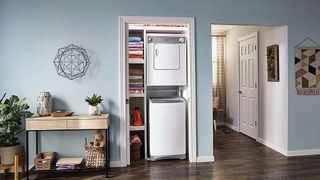
Gwylim Snook from AO.com suggests which type of dryer you should choose: "If your budget is lower, a condenser may be best. A heat pump model will be the most efficient if you have a larger budget but want to save money on energy bills. Condensing tumble dryers tend to cost more than venting ones, but they are more energy-efficient.
"Because heat-pump models reuse hot air, they are the most energy-efficient dryers on the market. They’re also much quieter and more gentle on your clothes due to the lower temperatures required to run the appliance."
Dryer FAQs
How do dryers work?
Dryers remove moisture from freshly washed clothes, making them dry and ready to go. A dryer has several key components and processes, and it is usually divided into two types: vented dryers and condenser dryers.
Vented dryers work by drawing air from the surrounding environment, heating it with electric coils or gas burners, and blowing the hot air into the drum where the wet clothes are. The hot air circulates the clothes, evaporating moisture. The moist air is then vented outside through a duct, so there's no humidity buildup.
In contrast to vented dryers, ventless dryers don't need external venting. They recycle hot air in a closed-loop system. The moist air is drawn from the drum, cooled, and condensed into water through a heat exchanger. The water is then pumped out into a reservoir or drainage hose.
A dryer without ductwork takes longer to dry clothes, but it's easier to install. Moisture sensors on both types of dryers tell them when they're done drying, so they shut off automatically.
Many modern dryers have different drying cycles and settings, so you can choose the right option for your fabrics and loads.
What are the different types of dryers?
There are many different types of dryers, each designed to meet different laundry needs and preferences. Here are the most common types:
Vented Dryers
Most people use a vented dryer. As the hot air circulates, it evaporates moisture from the clothes. It draws air from the environment, heats it, and blows it into the drum with the wet clothes. Normally, vented dryers are faster and more energy-efficient, but they need a duct to vent the moist air outside.
Ventless Dryers
A condenser dryer, also called a ventless dryer, doesn't have to vent externally. Instead, the hot air is cooled in a heat exchanger, causing moisture to condense into water, which can then be collected in a reservoir or drained away. Ventless dryers are ideal for apartments or homes without venting options, but they may take longer to dry clothes than vented ones.
Heat Pump Dryers
Ventless dryers with heat pumps heat and recycle the air inside the drum using a heat pump. They're super energy-efficient and consume much less electricity than normal dryers. Heat pump dryers use a heat exchanger to heat the air before it goes into the drum, then cool it down to remove moisture. They're getting really popular because of their eco-friendliness.
Gas Dryers
These dryers use natural gas or propane to heat up, so they tend to heat up faster and can be more energy efficient over time. However, they require a gas line to install, so they're more expensive at first.
Compact Dryers
These dryers are smaller in size, making them ideal for apartments or small spaces. They can be vented or ventless and are often stackable with washers.
How much do dryers cost?
On average, standard electric dryers cost between $800 and $1,200. However, gas dryers, even though they're in the same price range, usually have a higher upfront cost due to the extra installation requirements for gas lines.
Generally, vented dryers are the cheapest option, starting at $500 and going up to $1,200. Ventless dryers are usually more expensive, ranging from $800 to $1,500. This is because they condense moisture without venting.
A heat pump dryer is known for its energy efficiency, but it can cost between $1,200 and $2,000. Compact and stackable dryers, on the other hand, usually range from $600 to $1,200 and are perfect for small spaces.
The operating costs (see below) of dryers should be considered, as well as the purchase price. Based on a typical 40-minute cycle, electric dryers cost about 45 cents to run a load. Gas dryers generally have lower operating costs because they use less energy. Over a year, you'll pay from $70 to $200.
Installation can also add to the overall cost. Depending on the complexity, costs can range from $50 to $200 or more.
How much does a dryer cost to run?
On average, an electric dryer costs 45 cents per load. This is based on a typical 5,600-watt dryer running for about 40 minutes at 12 cents per kilowatt-hour.
Electric dryers typically cost more to operate than gas dryers, but the cost per load is usually about three times lower for gas dryers. If you have access to a gas line, gas dryers are a better option in the long run because they're cheaper than electricity.
Several things can influence these costs:
Age and Efficiency: Older dryers or ones not rated for energy efficiency may consume more electricity.
Size and type of load: Larger or heavier loads may require longer drying times, wasting more energy.
Utilities: Gas and electricity prices vary widely by region, affecting overall operating costs.
How long do dryers last?
Gas and electric dryers usually last between 10 and 15 years, depending on factors like type, use, and maintenance. Well-maintained units tend to last longer.
The more you use a dryer, the more wear and tear it gets. If you do laundry multiple times a week, the dryer may last longer than if you don't.
Maintaining a dryer is crucial to extending its life. Cleaning the lint trap after every use and making sure the venting system is clear can easily avoid overheating and lint buildup, which are common causes of dryer failure. Scheduling annual professional maintenance can also help identify and fix potential problems before they get worse.
Buying a high-quality dryer from a reputable brand often means better components and construction. Conversely, low-end dryers may not last as long due to inferior materials.
If your dryer requires frequent repairs or if clothes remain damp after a normal cycle, you may want to consider replacing it.
When is the best time to buy a dryer?
The best time to get a dryer deal is during major sales events, at the end of the model year, or during clearance events.
Buying appliances like dryers during major holidays like Black Friday and Cyber Monday is a great shopping time. Retailers usually offer substantial discounts. Likewise, Labor Day and Memorial Day sales often feature discounts on home appliances as stores try to clear out inventory.
Another strategic time to buy a dryer is at the end of the appliance model year, usually in late summer or early fall. Manufacturers often release new models around this time, so retailers discount older inventory. That means you'll get a good deal on quality dryers that still work.
Watch out for clearance sales or special events at local appliance stores. These can happen any time of the year, and they usually feature models that are being phased out or floor models that are still in great shape.
You can also get good deals if you shop during off-peak times, such as late winter or early spring. Demand for dryers may be lower, and retailers may offer discounts.
Price tracking websites and apps can alert you to price drops on specific models, helping you make an informed purchase no matter the time of year.
How we test the best dryers for this guide
Meet the team

Alex Temblador, an award-winning writer in Dallas, specializes in home, design, and architecture. Recently, she bought a historic Sears & Roebuck house. After testing the LG 7.3 cu.ft Ultra Large Capacity Electric Dryer for three weeks with various loads, she learned how to maximize its drying capabilities effectively.

Terri, a freelance writer in Birmingham, AL, has extensively tested various products, including the LG DLEX4000B 7.4 Cu. Ft. Smart Electric Dryer. After months of evaluation on design, performance, and maintenance, she continues to use the dryer, contributing insights to prominent publications like Forbes and Architectural Digest. Follow her adventures @Territoryone.

Paige Cerulli is a freelance writer with a passion for equestrianism. She is known for her diverse work in product reviews, health, and home renovation. Based in Western Massachusetts, she lives with various pets. Recently, she thoroughly tested the LG 5.0 cu. ft. All-in-One Ventless Washer/Dryer Combo to provide an honest review.
